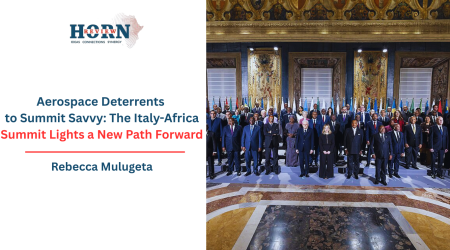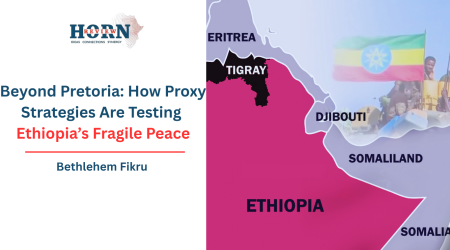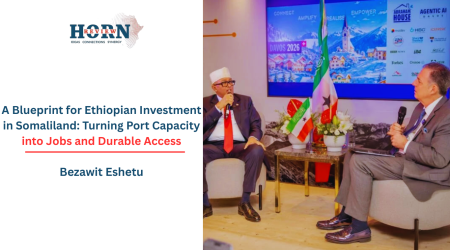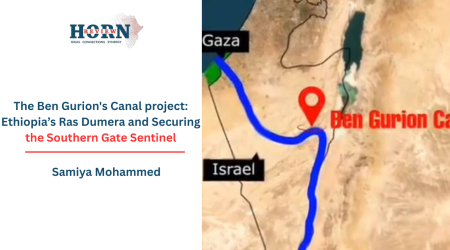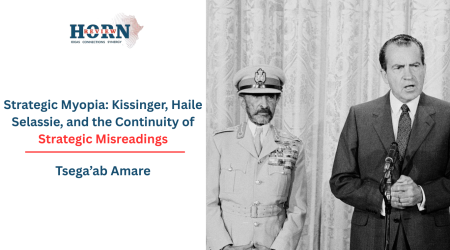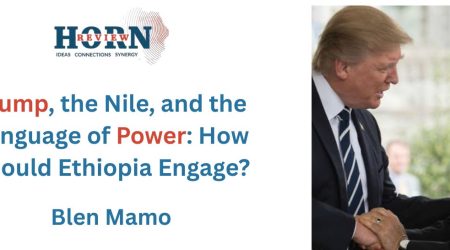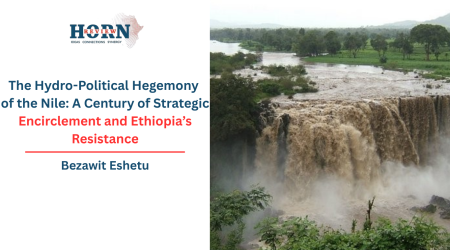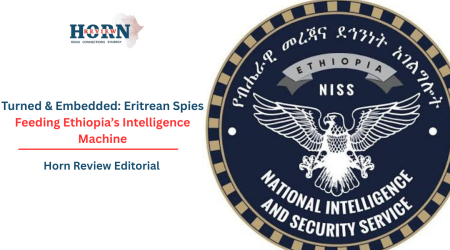
6
Sep
Ethiopia’s Silent Truth And Egypt’s Shattered Narrative
Ethiopia’s long history of seeking to harness the Blue Nile has been largely overshadowed by Egyptian concerns of losing water and being threatened with extinction. Even in Egypt, though, there are more and more professionals who understand that the Grand Ethiopian Renaissance Dam (GERD) can yield quantifiable benefit in the long run. To realize these benefits is to see a richer and deeper understanding of their nature, their pertinence, and also of their limits. What are the facts that are not spoken to by the Egyptian media and shattered by the Egyptian propagandas?
Egypt’s control of the Nile waters is old, dating back to the civilization that arose on its banks and used the river as a sole source of life and power. From the very beginning, Egypt’s rulers ordered the Nile waters at their beck and call to sustain their agriculture and civilization, and a tradition of dominance of this lifeline was born. This sense of entitlement turned into a form of water hegemony that has been instituted by Egypt for centuries, invoking its long record of dependence on the Nile to legitimize exclusive control. water but Egypt’s customary monopolistic dominance continued since time immemorial. Egypt’s concern goes beyond resource management to obtain recorded power and authority over the Nile Basin.
Egypt’s prevailing narrative portrays GERD as a regime that will “steal” precious Nile waters, leading to catastrophic shortages. Egypt and Sudan recently met and decided not to engage the other Nile basin nations in the negotiation indicating the two nations’ efforts to restrict Ethiopia’s interest.Hydrological research and global technical research have continually claimed, however, that the dam does not use water but instead manages the river’s flow.
Though the filling of the reservoir may create temporary fluctuations downstream, the total amount is roughly the same over the life of the dam. More significantly, by moderating the Blue Nile’s notoriously erratic and extremely seasonal flow, GERD can reduce Egypt’s exposure to the floods and droughts that have long beset the Nile basin.
The most transparent among the physical benefits to Egypt is augmented flood control. The northern Nile Delta region has long suffered at the behest of the devastating force of record floods, which bring destruction to infrastructure and agriculture. GERD’s enormous reservoir offers a buffer that lessens the impact of floods. Although this benefit comes directly to Sudan by virtue of geographical location, Egypt indirectly gains from stabilized river flows that mitigate anarchic fluctuations downstream.
GERD is in a much colder, deeper basin than Egypt’s shallow, hot Lake Nasser, and so would evaporate less water. This would, in theory, divert more water down to Egypt, albeit an incremental, not revolutionary, increase. This peaceful benefit hides the oversimplified assumption that the dam automatically cuts Egypt’s water supply.
The second dimension extremely lowballed in the controversy is GERD’s massive hydropower potential, offering a window of opportunity for cooperation in the energy sector. Egypt’s growing energy needs and industrial ambitions make GERD electricity imports an attractive move towards energy source diversification, lowering carbon intensities, and revving up economic growth. The chance, however, hinges on securing safe and equitable trilateral agreements with guarantees of unbroken energy transit alongside reasonable prices, which is made tricky by current political tensions.
The benefits Egypt can get from GERD are not limitless. The dam controls but does not augment the total quantity of water flow and therefore cannot independently alleviate Egypt’s overall water deficits based on population increase, climate change, and upstream consumption. Gradual reductions in filling flow over time have justified Egyptian concern and underscored the need for open, adaptive, and science-based water management principles. The potential benefits can be undermined without continuous cooperation and trust.
Sudan is a critical variable in this equation of change, poised to harvest direct dividend benefits in terms of improved flood protection, secure irrigation, and electrification. Sudan’s stability, cooperation, and facilitator role between Egypt and Ethiopia will be essential to maximizing downstream GERD benefits. Egypt’s hardline approach risks alienating the neighbors and missing out on these cooperative dividends.
Egypt’s water security narrative is slowly moving from across-the-board dismissal of GERD to reluctant acceptance. Internal issues in the form of political instability, urbanization pressures, and infrastructural deficiencies, however, ensure that such conversion must battle its way through intricate domestic sentiment. Cairo’s political leaders constantly weigh nationalist sentiment against economic pragmatism and every now and then smother constructive debate while specialists stress the imperative of engagement.
Egyptian resistance to the dam also better represents an attempt to safeguard not just access to water, but an ancient narrative justifying Egypt’s control of the Nile, one that shapes national identity and foreign policy as well. But while the detractors of the dam predict loss and catastrophe, technical projections depict GERD as a flow regulator, and not a water thief, one that can even be a flood-modulating and even energy-cooperation-potential-facilitating presence on downstream states.
To provide all such sophisticated benefits, the controversy is hazardous because it is a fight over legacies, political clout, and regional hegemony as much as hydrology. Egypt’s embedded past of its ancient entitlement to the Nile renders partnership and equitable division of water less likely and transforms the GERD controversy into not only a contest over water but a contest against history and identity. It is important to see this tangled combination of history, political reality, and emerging challenges so that one can speculate on a future in which the Nile will be managed not as a win-lose good but as a shared foundation for regional stability and growth. They want to start this push to make the public sentiment focus on the external issues rather than the public tho ask the egypt government about the internal political and internal problems.
Lastly, GERD is Egypt’s opportunity. Its promise in terms of flood control, prevention of evaporation, and energy is high but conditional. It requires operating transparency, basin cooperation, and political accommodation to realize that promise. GERD does not so much contribute to the budgetary inflow of water into Egypt as increased water management, a distinction that is vital in Egypt’s growing shortage.
Embracing the better benefits of GERD challenges Egypt to set aside zero-sum fears for Nile Basin cooperation. Reframing the dam as part of a wider, cooperative water network instead of an icon of threat can promote regional stability and prosperity. Tamping down myths of water theft and welcoming an age where Nile resources are enjoyed equitably and productively is more satisfying than defensive adversary rhetoric.
Hope for GERD is not in stolen or missing water, but in more common and regulated water. if political will converges with technical realities. The dam is also a representation of Ethiopia’s historic development aspirations, exerting sovereign authority over its natural resource. In this view, the future of the Nile is not a zero-sum game but a complex, interlinked regional issue requiring creativity, trust, and collaboration.
By Rebecca Mulugeta, Researcher, Horn Review

